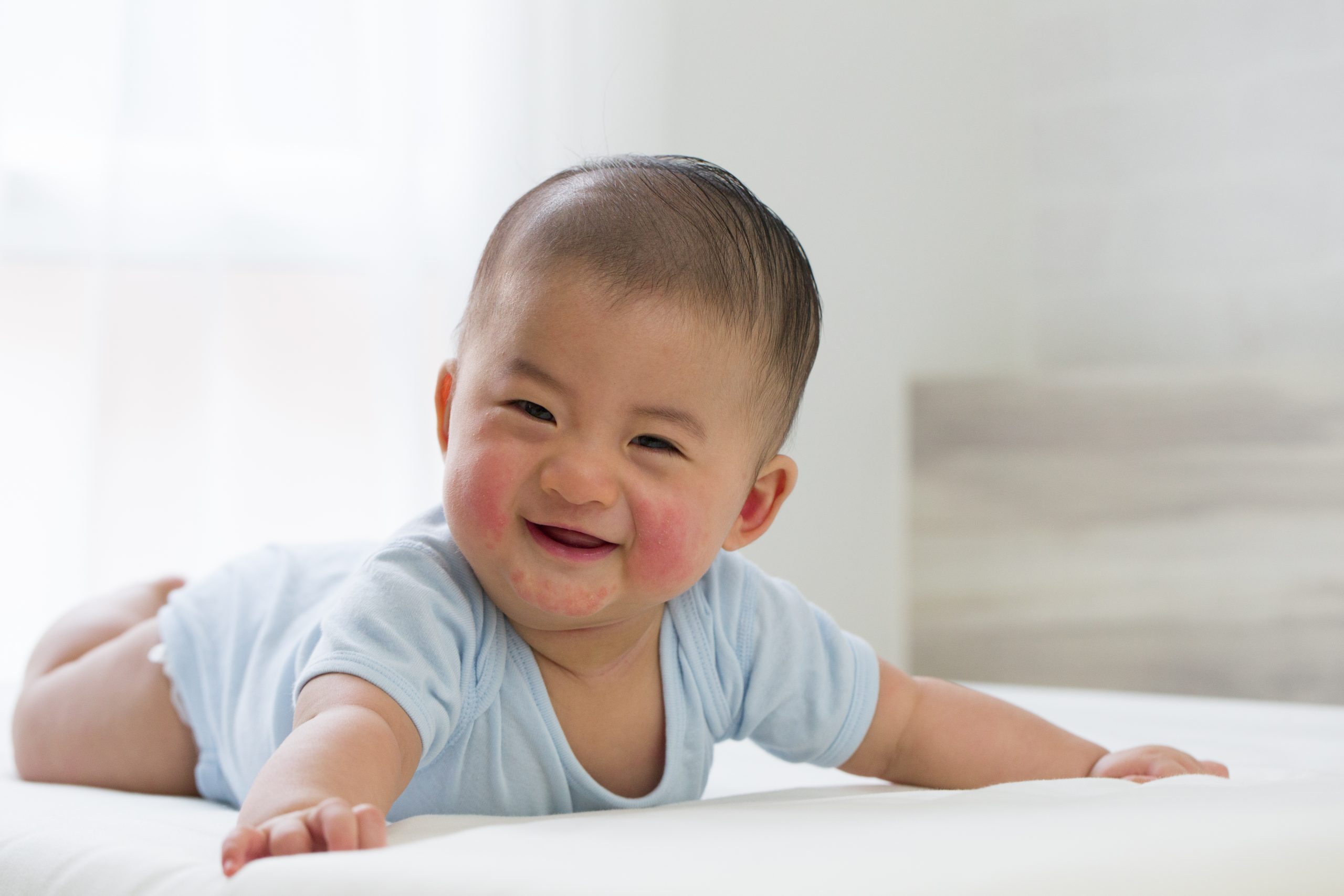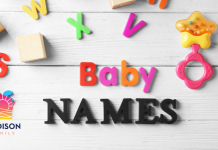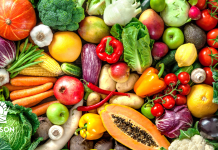What food allergies can look like, when you don’t know it’s food allergies.
My son had his first allergic reaction to eggs one month before he turned 1-year-old. A blood antibody test later showed that he was also allergic to peanuts, and tree nuts. The eczema, weight loss and refusal to nurse were all major red flags leading up to his diagnosis. Nonetheless, flags that went unnoticed.
I quickly learned what eczema was when my 4-month-old’s face became so red and irritated that it was painful just looking at him. The dermatologist assured us however, that for as red as his little face was, it wasn’t causing him any pain; and the consistent baby smiles and giggles proved this to be true.
According to the National Eczema Association, “Eczema is the name for a group of conditions that cause the skin to become itchy, inflamed and red.” Atopic dermatitis is just one of the seven different types of eczema. A 2019 article published in Science Daily states that: “Atopic dermatitis affects nearly 20% of children, 30% of whom also have food allergies.”
When he started losing weight (also around 4 months), his pediatrician immediately recommended supplementing with formula. I was not on board. I was planning to breastfeed this baby until he was at least 1-year-old! I sought out a Lactation Consultant, who confirmed that I had all the right technique and was doing everything I was supposed to, but he continued to lose weight. And meanwhile, our pediatrician was urging me to start formula like the clock the was running out in a tied game, in overtime. So, I started supplementing, which of course tanked my supply. The last day I tried nursing him consisted of blood curdling screams and pushing against me in protest. I’d be mad too, if I wasn’t getting enough to eat!
Throughout the remainder of his first year, I lamented over having to formula feed him, about not being able to make it through that first year exclusively breastfeeding. I knew how good it was for him, and it was an experience I wanted to have with my first child. I carried that guilt with me up until a couple months ago, when I stumbled across the story of another food allergy mom, who described a very similar nursing experience (albeit with a different ending):
This was my story exactly! The arching back, the confusion and frustration passing between mom and baby, and back again: I thought you were hungry and now you won’t eat, what’s going on?! It was a moment of stark realization, to say the least. But I am so very thankful, because thanks to her story, I realized that my son’s protest to nurse was most likely the result of him reacting to his allergens (eggs and peanuts), through my breastmilk. Sure enough, scrambled eggs and peanut butter toast was the plat du jour during that hazy time in our lives…
The “If only” thoughts didn’t waste any time flooding in — If only I would have done an elimination diet to be able to keep nursing that first year…If only we would have done a blood antibody test to know which allergens he was reacting to… If only we knew he had food allergies, we could have spared him from having an allergic reaction altogether that fateful September day.
Per Children’s Hospital of Philadelphia, “Proteins from the foods that you eat can appear in your milk within 3–6 hours after eating them. If you eliminate these foods from your diet, the proteins will disappear from your breast milk in 1–2 weeks and the baby’s symptoms should slowly improve.”
Here I am, figuring all this out now and still asking questions — Why didn’t the dermatologist see his eczema as a red flag? Why didn’t his pediatrician question his weight loss more? I suppose, pediatricians refer you to a dermatologist for skin matters, and dermatologists to a pediatrician for feeding matters. The only ones seeing the big picture were my husband and I, and as first-time parents, with zero previous experience with eczema, breastfeeding, and ultimately, food allergies — we were completely in the dark on all of it.
Although we learned many lessons the hard way, I still consider us to be one of the lucky ones. We avoided his allergens for SEVEN full years. We definitely had some close calls, but not once did we have an emergency situation that required us to use his EpiPen. And today, he has officially outgrown two of his three allergens (insert confetti!).
I recognize that this reality is not the same for others though, nor will it be for many to come, which is why I’m sharing my story. Parenthood comes with so many other potential challenges (and I’m talking in addition to the extreme sleep deprivation and post-partum symptoms), food allergies just happened to be mine.
Let’s keep supporting, and learning from each other, as we continue to figure out this parenting stuff, one day at a time.
**This story is based on my personal experience, and as such does not constitute medical advice. If you believe your child has a food allergy, you should seek the direct opinion of a medical professional.














Unless you’re a medical professional with experience in this area, this article seems irresponsible. Maybe you’re onto something, maybe it’s just coincidence. Unless you’ve done extensive research, you’re sending parents on a crazy witch hunt. I have 4 kids. All of them had eczema. My oldest lost a ton of weight and had to get a special high-calorie formula. My third is the only one with a food allergy and she nursed for a year and was otherwise healthy. Kids with food allergies sometimes have eczema. Babies with eczema most often are otherwise healthy. Don’t scare parents unnecessarily.
@Mary, I wrote this story to help other parents who may see similar symptoms in their own children figure out what could be going on, before reaching a food allergy diagnosis by way of an allergic reaction, which in some cases can be quite severe. You don’t need to do “extensive research” to understand that there is a correlation between eczema and food allergies (reference the link provided in the article); and requesting a blood antibody test from a medical professional does not equate to a “crazy witch hunt.”